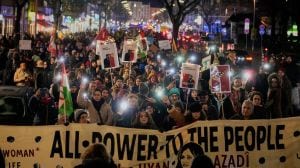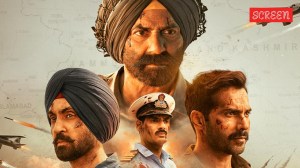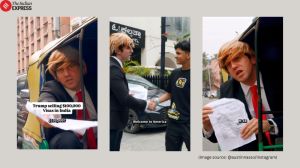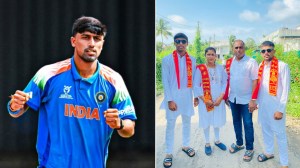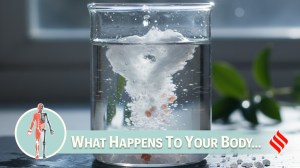Why former Philippines President Rodrigo Duterte was arrested on ICC warrant
Duterte’s arrest has come at a time when his relationship with Ferdinand R Marcos Jr — successor of the former President, and son of the late dictator Ferdinand E Marcos — has deteriorated. Here is what to know.
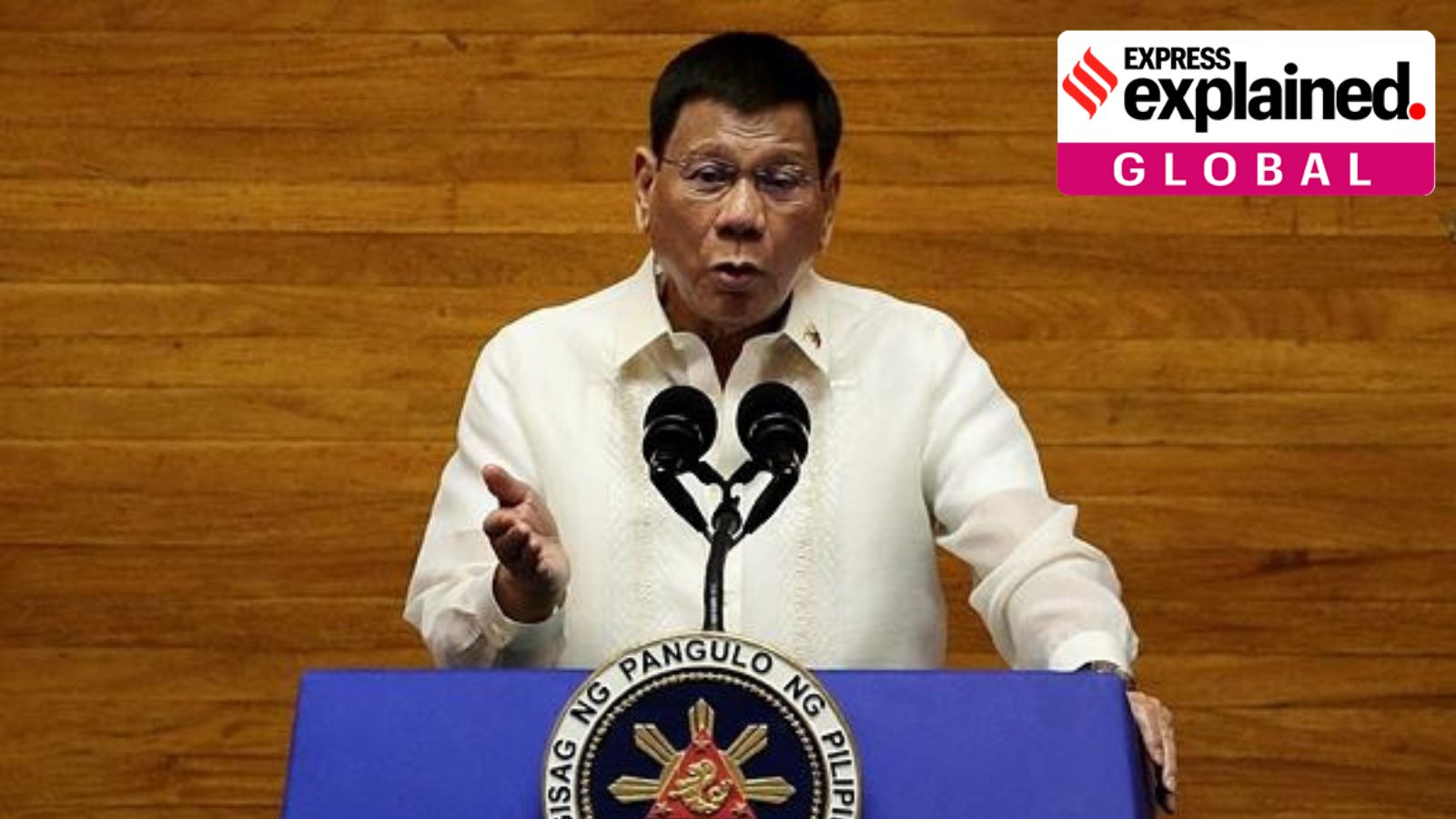 Before becoming the President in 2016, Duterte was the mayor of Davao, a sprawling southern metropolis, for 22 years, and gained fame for making the city one of the country's safest from street crimes. (Reuters)
Before becoming the President in 2016, Duterte was the mayor of Davao, a sprawling southern metropolis, for 22 years, and gained fame for making the city one of the country's safest from street crimes. (Reuters)Former Philippine President Rodrigo Duterte was arrested on Tuesday (March 10) on a warrant issued by the International Criminal Court (ICC), which was investigating allegations that “crimes against humanity” had been committed during his so-called “war on drugs”.
“Early in the morning, Interpol Manila received the official copy of the warrant of arrest from the ICC,” the government of the Philippines said in an official statement. “As of now, he is under the custody of authorities.”
Duterte’s crimes
Before becoming the President in 2016, Duterte was the mayor of Davao, a sprawling southern metropolis, for 22 years, and gained fame for making the city one of the country’s safest from street crimes. He used Davao’s reputation to cast himself as a tough-talking anti-establishment politician and won the 2016 elections by a landslide, the BBC reported.
In the final campaign rally that year, Duterte told the crowd to “forget the laws on human rights”. He added, “You drug pushers, holdup men and do-nothings, you better go out… Because I’ll kill you.” Duterte also promised to give himself and his security forces immunity from prosecution and pardon himself “for the crime of multiple murder.”
During his single, six-year term, which ended in 2022, 6,000 suspects were gunned down by police or unknown assailants as part of his “war on drugs” campaign. However, rights groups claimed that the number could be higher. A UN report subsequently revealed that most of the victims were young, poor urban males, and that “the police who do not need search or arrest warrants to conduct house raids, systematically forced suspects to make self-incriminating statements or risk facing lethal force,” the BBC report said.
Despite the brutal crackdown, authorities could only target street-level pushers and failed to catch big-time drug lords, according to experts.
Duterte, who denied all the accusations, also withdrew the Philippines from the ICC in 2019. The international court first took note of the alleged abuses in 2016, and started its investigation in 2021. It covered cases from November 2011, when Duterte was mayor of Davao, to March 2019.
The political angle
Duterte’s arrest has come at a time when his relationship with Ferdinand R Marcos Jr — successor of the former President, and son of the late dictator Ferdinand E Marcos — has deteriorated. Marcos rose to the presidency after forming a political alliance with Duterte’s daughter Sara, who was elected as his vice president. However, Marcos and Sara got embroiled in a political tussle, especially due to their different views about what the US and China mean for the Philippines.
Although the Philippines had decided to not rejoin the ICC, the Marcos government in late 2023 quietly allowed the court’s investigators to enter the Philippines. Last year, the country’s House of Representatives also started an inquiry into Duterte’s drug war.
The former President remains a popular leader in the country as he is the “first leader from Mindanao, a region south of Manila, where many feel marginalised by the leaders in the capital,” according to the BBC report. Moreover, his daughter is expected to be a potential presidential candidate in 2028.
The ICC
Headquartered in The Hague, Netherlands, the ICC was established on July 17, 1998, under the Rome Statute, an international treaty, and came into force in July 2002. The international court aims to help “end impunity for the perpetrators of the most serious crimes of concern to the international community.”
So far, 32 cases have come before the ICC, which is composed of 18 judges who are elected by the member states and serve 9-year, nonrenewable terms. The court has issued 60 arrest warrants. Twenty-one people have been detained in the ICC detention centre, and 31 people remain at large, according to the court.
As of January 2025, 125 countries are party to the Rome Statute, including Britain, Japan, Afghanistan, and Germany. India, China, and the United States are not members.
Crimes that ICC focuses on
The ICC has international jurisdiction over four types of crimes: crimes against humanity, genocide, crimes of aggression, and war crimes. It can step in when countries are unwilling or unable to prosecute suspects for these crimes.
Notably, the court, which prosecutes only individuals, does not have its own policing body and relies on other countries for support in “making arrests, transferring arrested persons to the ICC detention centre in The Hague, freezing suspects’ assets, and enforcing sentences,” according to the court.
Additionally, the offences should be committed either in a country that ratified the Roman Statute or by a national of a ratifying country. The ICC can also practise its jurisdiction over cases referred by the UN Security Council to it.
- 01
- 02
- 03
- 04
- 05












